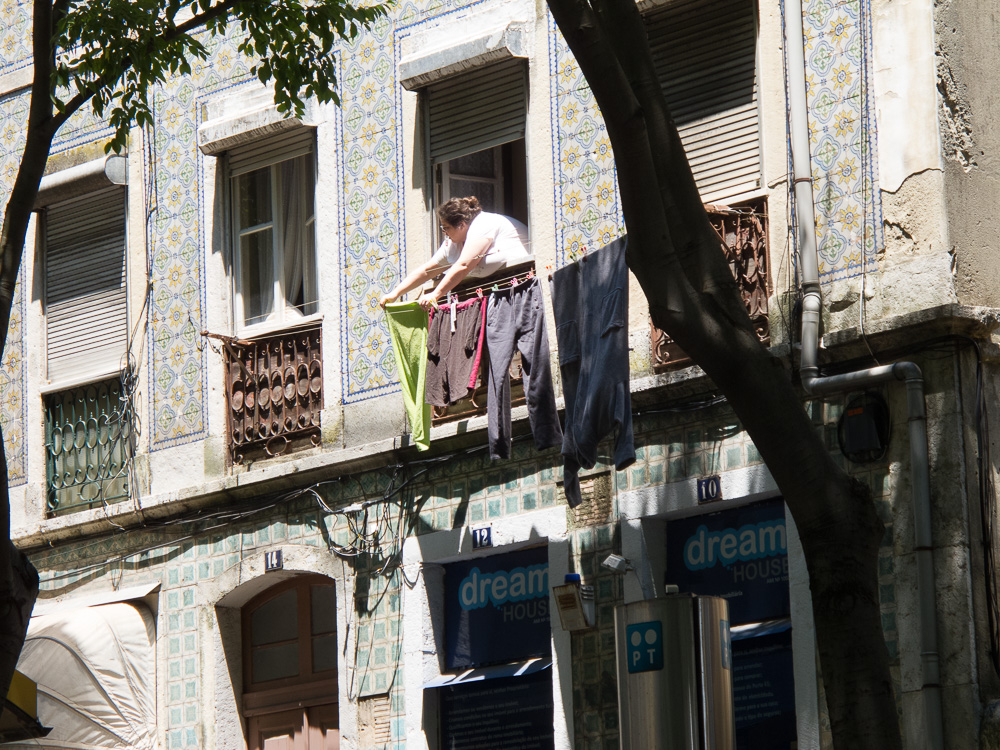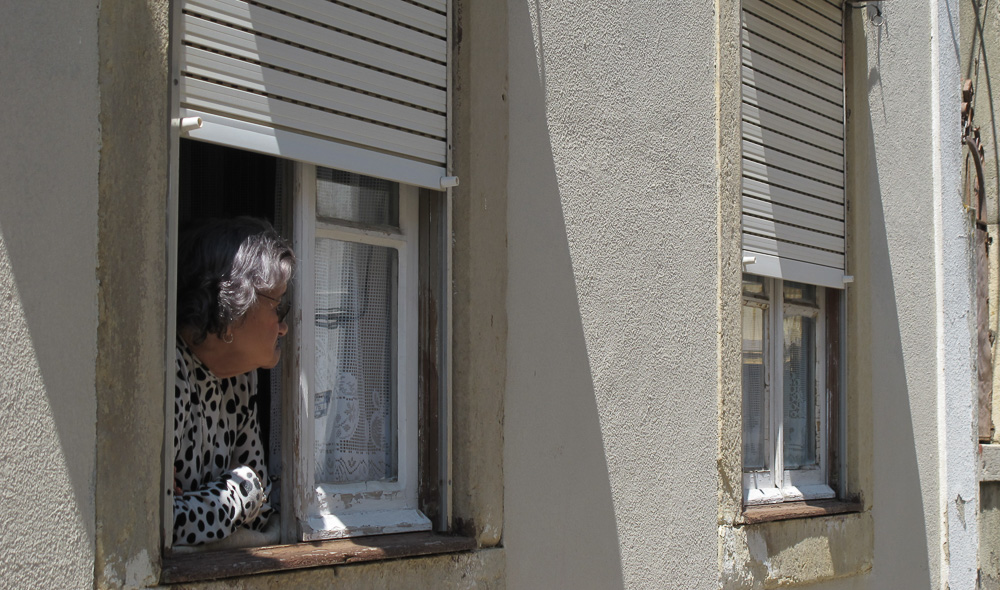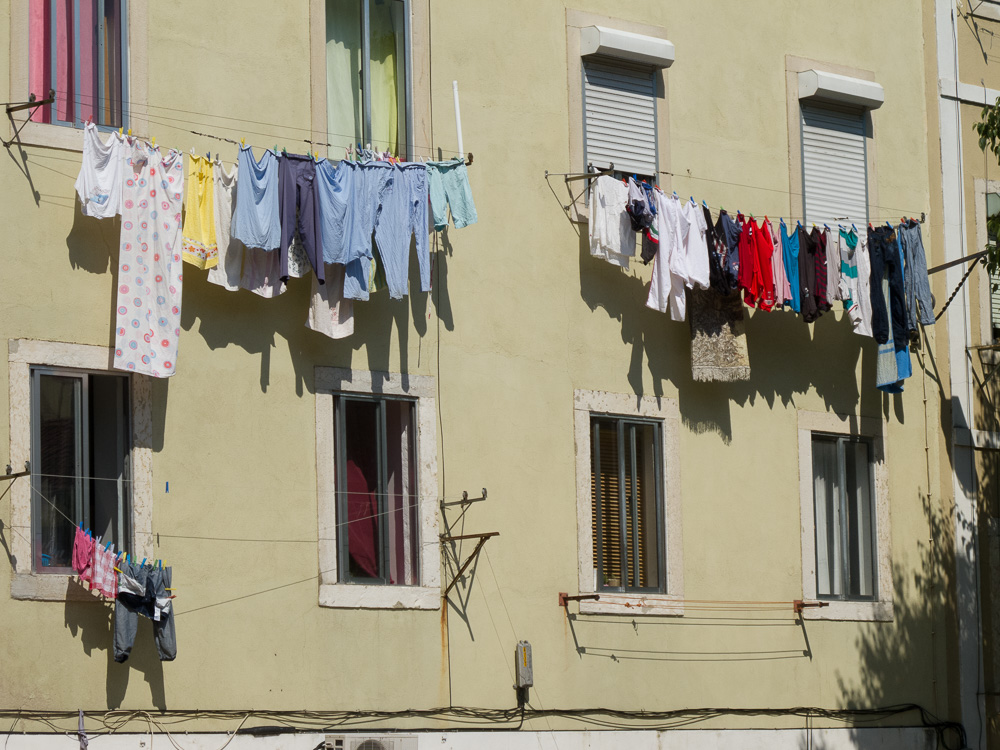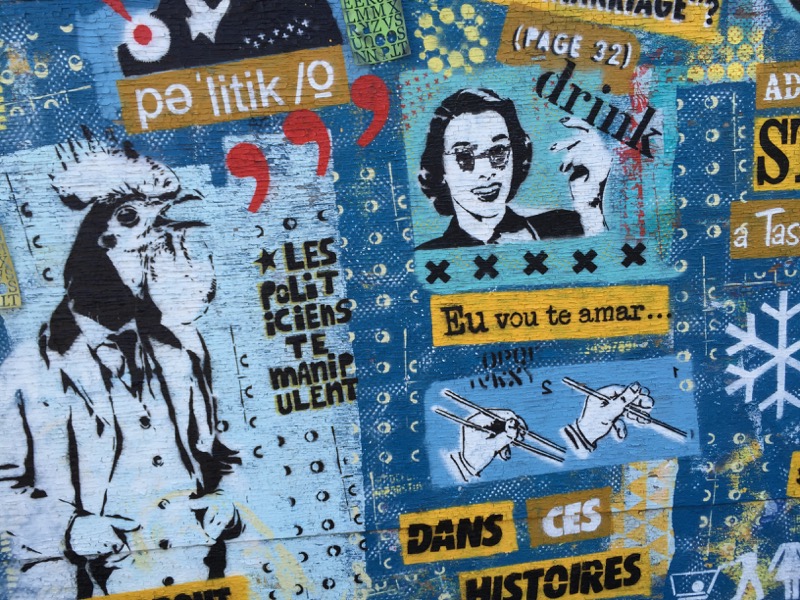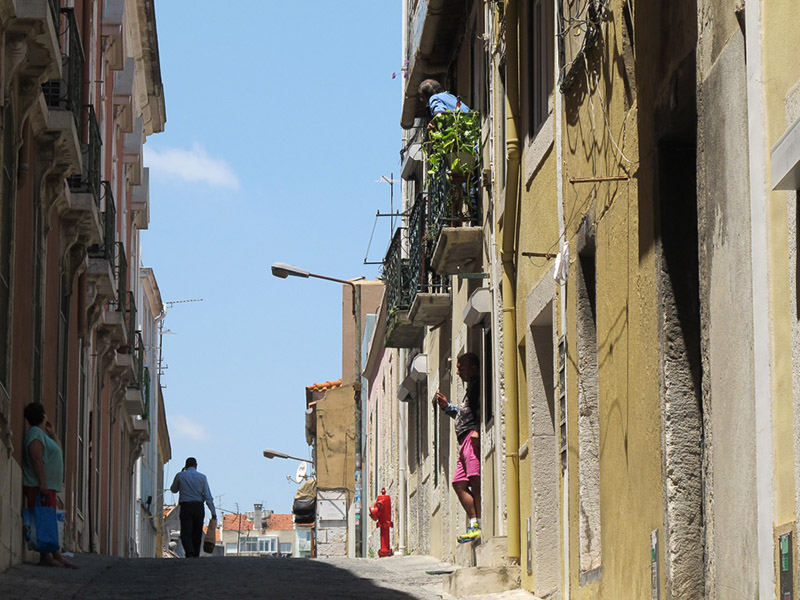
The shoemaker
On that day, I decided to take streets parallel to the wide streets of Lisbon, to see more than the beautiful paths that the city spreads out to give itself great airs. Life, the one we see each day, prefers alleys, gutter dogs and small coffees.
Lisbon then, even in its center, may seem deserted. People go about their business or are simply not there. There are only the old people, the municipal employees and, strangely enough, no cats left on the horizon. I don’t think I’ve seen a cat in my whole stay. Do they eat them in Lisbon?
I stole a few shots, leaving my camera hanging around my neck, without aiming well. The clotheslines amused me. They are different from those found in North America. As they cannot launch themselves over the backyards, they walk along the facades and balconies, as if they were dizzy.
I missed a nice picture. It was on a street with a steep slope. Not a cat in the literal and figurative sense, except a few tables away from a café around which I saw people standing still. The sun also failed to reach the ground. Only a few windows on the upper floors received light. Suddenly, on my right, an old shoemaker, crouched down just at the entrance of his shop, working on a shoe. A real postcard from the 1920s or 1930s, when poverty in the United States blew its high sandy winds. My reflex was to stop and take quickly a picture of him. But I was barely 10 cm from him. He didn’t seem to have noticed me, was pursuing his slow or useless task on a shoe that looked as old as him. He must have been 90 years old, his back bent like a tree that had long faced the gusts and waves of the sea.
However, I couldn’t stop for more than three or four seconds. I had time to observe his shop, no brighter, just as old, just as deserted. Obviously, the mess was complete. This shop had stopped living and the old shoemaker was probably dying there in front of me.
Out of respect, I walked away. I could have taken out €10 and given them to him so that he would allow me to photograph him. But his attitude would certainly have changed, I would have broken the moment, or he would not have understood, would have closed his door, hiding his poverty or his non-existence. I don’t know. I didn’t want him to think I was taking pity on him.
For a good ten minutes, I continued on my way, protesting against my shyness and failure. I was tempted to go back to see him, then I gave up the idea. All I have left are these words to engrave in a relative and ephemeral memory this short moment that had never belonged to me anyway.
